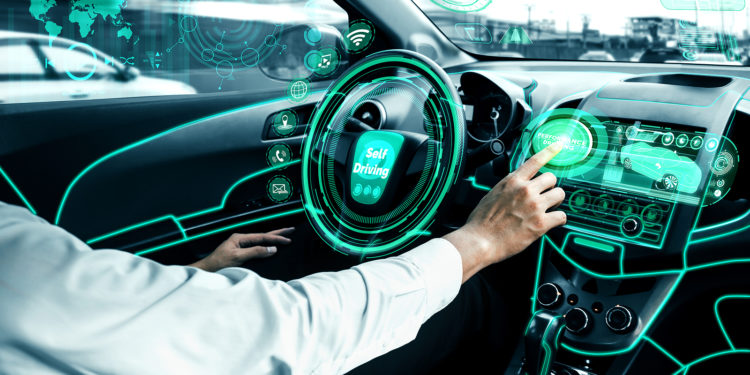Reports about an Apple Car have been with us for almost six years. Now a highly speculative report has been published that deals with AI capabilities.
Analyst Colin Barnden has published a highly speculative report on EETimes about the Apple Car published. This outlines the methodology and licensed technologies likely behind an automotive-grade Apple processor. For example, Barnden believes the Apple Car could receive a "C1" chip based on the A12 Bionic processor. This chip would enable AI capabilities such as eye tracking in the interior. Since Apple will need a chip foundry with automotive process capacity, the analyst believes Samsung or TSMC could supply Apple. TSMC is believed to have been developing a 7nm process for automobiles for some time, while Samsung has the Exynos Auto V9 SoC on its 8nm process.
Apple must license existing technologies
With an understanding of supplier constraints, the report suggests that the C1 could bear a close resemblance to the design of the A12 Bionic chip, which is already manufactured using a similar 7nm process and could be manufactured by TSMC. Tesla's Full Self-Driving chip has 6 billion transistors and a power consumption of 36W, putting it below Apple's A12, which has 6.9 billion transistors and a power consumption of 3.5W. Due to its parity with existing automotive SoCs, it is speculated that the C1 will be based on the A12 Bionic before being modified for specific automotive applications.
I'm sure Apple would make some tweaks, changes and additions to keep us all guessing, but if the iCar is set to go into production in 2024, then a slightly modified variant of the A12 looks like a great starting point for the C1. So why reinvent the wheel?
Knowing that Apple licenses technologies it cannot develop itself, such as ARM architecture technologies and CPU cores, the report suggests that Apple will license a number of technologies for the C1. First and foremost is Seeing Machines' Occula NPU core, which would allow Apple to implement a wealth of AI features in the vehicle, such as driver eye tracking.
Apple Car: The market launch is still years away
Seeing Machines has chosen an ARM-like business model for licensing the Occula Neural Processing Unit and is making it available to Apple to implement in its own chip designs. Occula has AI and computer vision algorithms, human factors expertise with naturalistic driving data, IR optical path expertise in operation and an embedded 3-pillar processing strategy. The technology is therefore believed to be Cupertino's first choice for developing AI-driven monitoring systems in the vehicle cabin. Whether Apple will actually end up presenting its own autonomous car remains to be seen. If previous reports are correct, an announcement will not be made before 2027 / 2028. On offer: MagSafe Duo charger 18 percent cheaper (Photo by World Image / Bigstockphoto)





